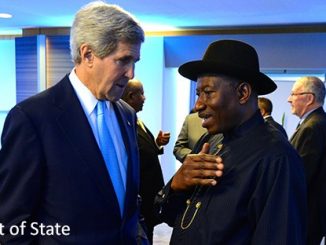
By Amin Kef
Recent years have shown how susceptible African countries are to economic shocks and fluctuations in currencies and commodity prices. Some are more vulnerable than others because their economies are dependent on the export of one or just a few commodities or primary products.
When there is a downturn in commodity prices, mono-product economies such as Nigeria, Angola, Zambia, and Sierra Leone accordingly suffer economic stagnation.
In 2015, China’s imports from Africa fell by 40% as a result of the country’s slowing growth, and the drop in demand for iron ore, oil and other minerals triggered a global collapse in commodity prices. In Zambia, where copper accounts for 60% of exports, the currency, the Kwacha, hit an all-time low two years ago and remains depressed. The same happened to Sierra Leone when iron ore pr8ices collapsed and the industry closed.
In Nigeria, the collapse in oil prices resulted in budget deficits and depleted foreign reserves, culminating in a recession that the country has only just emerged from.
This has brought home to African policymakers that sustainable economic growth depends on diversification. However, for the most part, African governments have not taken advantage of the past decade’s growth spurt to diversify.
Many benefits accrue from diversified economies, not least protection from external shocks. Trade volume grows and there is higher productivity in the economy.
While diversification remains elusive, particularly in sub-Saharan countries, progress has been made in some. Tanzania, Uganda and Kenya, for example, have achieved substantial progress with export diversification since the early 1990s.
The Indian Ocean state of Mauritius has successfully transformed itself from a sugar-dependent economy into a major financial services hub, with a vibrant export sector in textiles, clothing and jewellery.
Botswana is also making concerted efforts to end its reliance on diamond exports. Its diversification effort is focused on textiles, leather, glass and jewellery for export.
Although accountants can help the process of diversification by providing governments with advice, it is politicians who have the ultimate power.
In 2009, way before the 2015 collapse of commodity prices, the then president of the Institute of Chartered Accountants of Nigeria, Elizabeth Adegbite, called on the government to diversify the economy or risk missing out on United Nations’ millennium development goals by the 2015 target date, a scenario that eventually played out.
It is easy to recognise the need for change, but more challenging to achieve it. The UN Office of the Special Adviser on Africa, the Organisation for Economic Co-operation and Development and the African Union’s New Partnership for Africa’s Development released a joint study in 2010. Titled Economic Diversification in Africa: a Review of Selected Countries, it identified six drivers with a part to play in facilitating diversification: governance; the role of the private sector; natural resources; regional factors; broader international framework; institutional capacity and HR.
Governments need to create a regulatory framework that is attractive to investors and allows entrepreneurs to thrive. Customs procedures must be reformed and the administration burden reduced to make it easier to export. Countries that have adopted these principles have seen results.
According to the World Bank, annual average growth rates in Rwanda, Ethiopia and Tanzania are above 6%, despite slowing in sub-Saharan Africa overall to 3% in 2015. Albert Zeufack, the World Bank’s Chief Economist for Africa, puts their performance down to stronger macroeconomic policy, a better regulatory environment and, crucially, a more diverse structure of exports.
Regional integration and cooperation also have a part to play in diversification success. Standardising customs requirements, reducing tariffs and developing transport corridors all help to encourage trade.
To achieve these goals, human and institutional capacity needs investment to develop skills and a framework to support and facilitate new sectors of activity. There are no short-term fixes. Diversification requires significant capital investment and a consistent and dogged approach from governments.
It won’t happen overnight. Many African countries fall short in ease of doing business rankings. Procedures for starting up a business must be simplified, access to credit and electricity expanded, and registration of property and payment of taxes made easier.
A key challenge of diversification is the development of income-generating activities in underdeveloped sectors. The most effective way is for governments to work with the private sector to promote innovation and secure investment in research and development. Partnerships with foreign entities and international organisations will be key in this.



